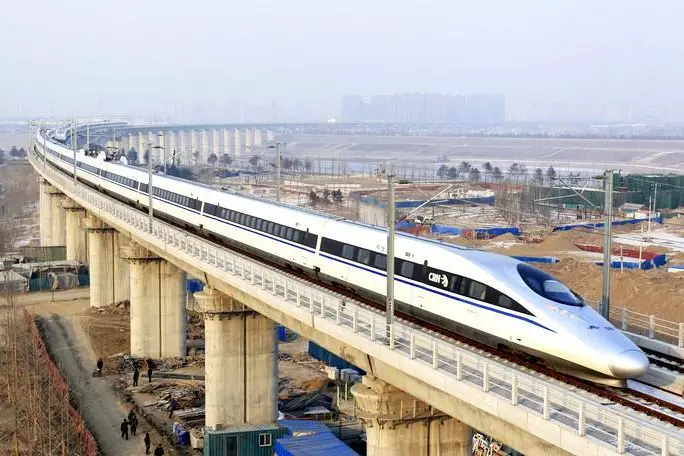PHOTO
*
China's foreign minister visits Hanoi amid plans for Xi's trip
China and Vietnam are working on a possible significant upgrade of their underdeveloped rail links to boost a line that crosses Vietnam's rare earths heartland and reaches the country's top port in the north, senior officials and diplomats said.
The talks are part of preparations for a possible visit to Hanoi in coming weeks by Chinese President Xi Jinping, officials and diplomats said, which would further confirm Vietnam's increasingly strategic role in global supply chains as major powers including the United States vie to gain influence there.
Deeper trade ties and railways connections are expected to be discussed on Friday as China's top diplomat Wang Yi meets Vietnam's Deputy Prime Minister Tran Luu Quang in Hanoi, diplomats said.
Vietnamese Prime Minister Pham Minh Chinh called for the upgrade of the railway linking Kunming in southern China to Vietnam's port city of Haiphong in a statement released last month, after China's Commerce Minister Wang Wentao made a rare visit to Vietnam.
Chinese officials have stressed the importance of boosting infrastructure connectivity with their southern neighbour.
Vietnam has already rail connections to China, but the system is old with limited capacity on the Vietnam side. The two systems are also not interoperable at the moment, meaning trains have to stop at the border where passengers and goods are transferred to domestic services.
The upgraded railway would pass through the region where Vietnam has its largest deposits of rare earths, of which China is by far the world's biggest refiner.
Vietnam is trying to build its own industry in what is seen as a possible challenge to China's dominance, but what appear as internal fights have cast a shadow over these efforts.
Chinese and Vietnamese rare earths industry experts discussed last week stronger cooperation on processing the minerals, according to Vietnamese state media.
It is unclear how much China would contribute to the upgraded railway track in Vietnam and whether Hanoi would accept sizeable financing from Beijing on this.
The line could be seen as part of China's flagship Belt and Road Initiative (BRI) which is supporting infrastructure investment across the world, but is not clear whether it would be labelled as a BRI project, one diplomat said.
A strengthened railway link could also boost Vietnam's export to China, mostly of agriculture products, boost Chinese tourism to northern Vietnam and further integrate the two countries' manufacturing industries, which experts already consider as symbiotic, with factories in Vietnam largely assembling components produced in China.
China is Vietnam's largest trading partner and so far this year is also the main investor, taking into account investment from Hong Kong, as many Chinese companies move south some of their operations amid trade tensions between Beijing and Washington.
Despite the booming economic links, the two communist nations are embroiled in a years-long maritime dispute in the South China Sea and fought a brief war in the late 70s, China's latest.
(Reporting Francesco Guarascio and Khanh Vu; additional reporting by Phuong Nguyen; Editing by Stephen Coates)





















